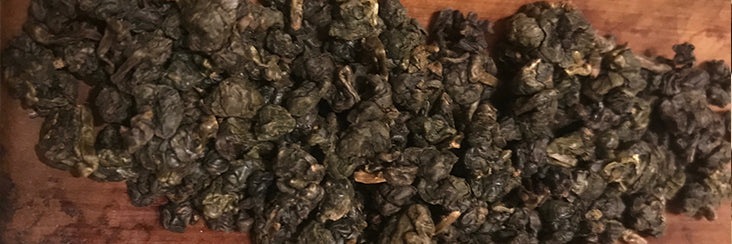Eco-Cha Tea Club
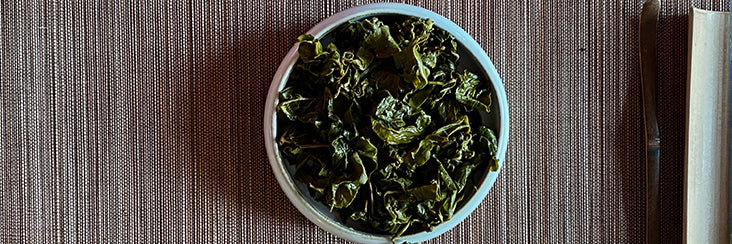
Light Roast Yushan High Mountain Oolong Tea Tasting Notes | Eco-Cha Tea Club
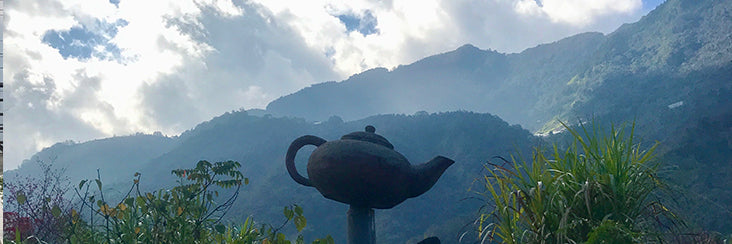
Light Roast Yushan High Mountain Oolong Tea | Eco-Cha Tea Club
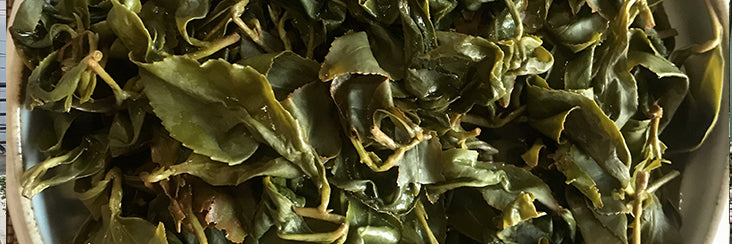
Alishan High Mountain Tea Tasting Notes | Eco-Cha Tea Club
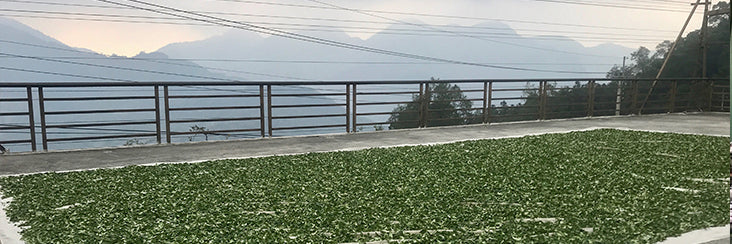
Alishan High Mountain Oolong Tea | Eco-Cha Tea Club
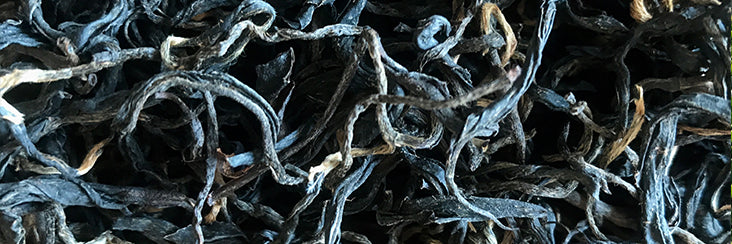
Alishan High Mountain Black Tea Tasting Notes| Eco-Cha Tea Club
Eco-Cha Tea Club's batch #48 is Alishan High Mountain Black Tea. It has a very balanced, integrated flavor profile, and offers subtle notes of a Qing Xin Oolong. The brewed leaves still have a greenish hue, even though the stems are quite reddish, indicating nearly full oxidation. It is an interesting hybrid of tea types, but definitely acts more like a Black Tea made from the small leaf type Qing Xin strain.
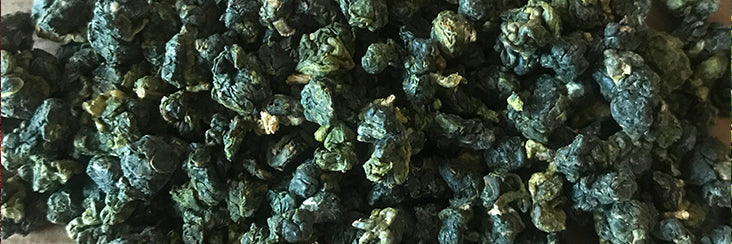
Cui Feng High Mountain Oolong Tea Tasting Notes | Eco-Cha Tea Club
The prominent features of this batch of tea are the growing region, the farming methods, weather conditions on the day of harvest, and the degree of oxidation in the leaves in their processing. These factors offer us a premium quality High Mountain Oolong Tea.
The brewed tea offers a creamy, soft pine aroma with a smooth, savory/vegetal character that is very satisfying. It has a lingering, thick yet mild floral aftertaste, with a touch of heady spice. It's this integrated composition that we have come to appreciate most about High Mountain Oolongs. When there is sufficient complexity, combined with a thick, smooth constitution that actually shines the most after it has cooled down, it rates high on our Oolong score chart!
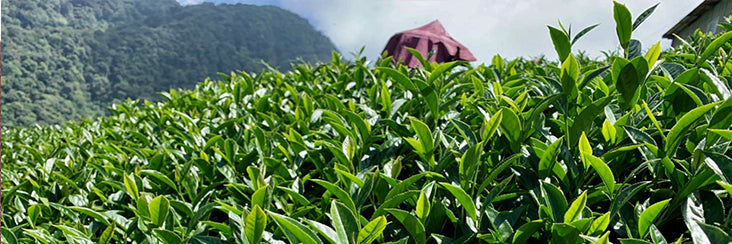
Cui Feng High Mountain Oolong Tea | Eco-Cha Tea Club
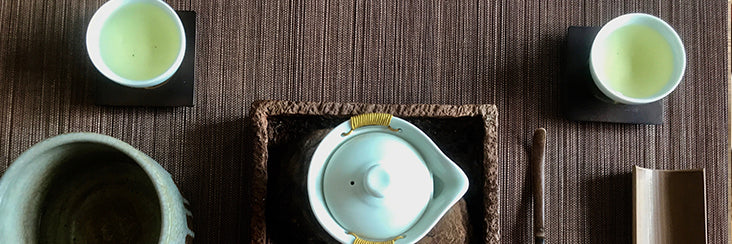
Alishan Late Spring Oolong Tea Tasting Notes | Eco-Cha Tea Club
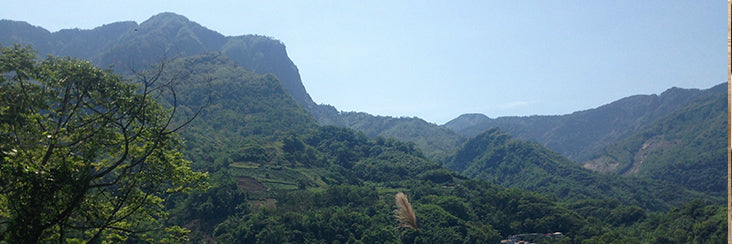
Alishan Late Spring Oolong Tea | Eco-Cha Tea Club
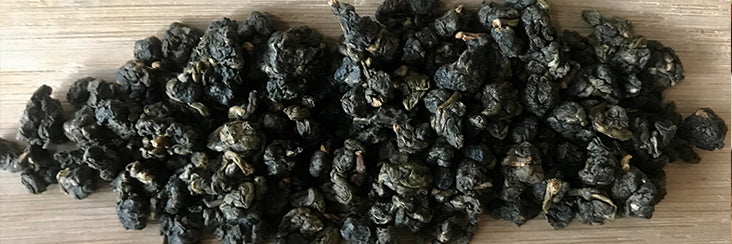
Traditional Lugu Oolong Tea Tasting Notes | Eco-Cha Tea Club
The medium oxidized leaves have undergone extensive, repeated roastings that have resulted in a very balanced, integrated character. The initial steepings offer a freshly cut wood aroma with a toasted nutty flavor. This proceeds to open up into a sweeter, more complex profile that is strikingly reminiscent of roasted winter vegetables, including parsnip, caramelized onion and butternut squash.
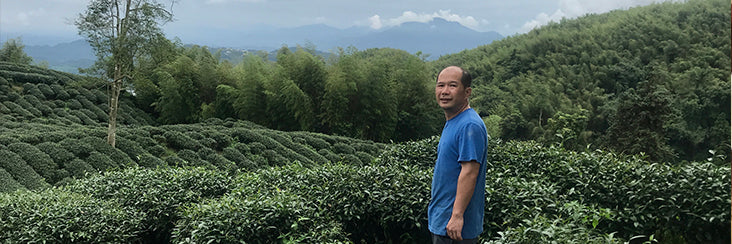
Traditional Lugu Oolong Tea | Eco-Cha Tea Club
Mr. Zhang's father cultivated tea on their homesteaded land in Xiaobantian, on the southside of Lugu Township, where he grew up in the midst of traditional tea making. At 20 something, he decided to embody his local tradition by clearing land to cultivate his own plot of tea. For the last 20 years, he has managed his own humble, privately owned plot of tea. Throughout this period, he also acquired seasonal work in tea factories in Lugu, Shanlinxi, Alishan, Fanzaitian, and Lishan. In a word, he learned the ropes of tea making in a comprehensive way, like most tea farmers of his generation. Lugu hosts the highest concentration of tea makers in Taiwan, and is a hub of specialty tea making culture.
